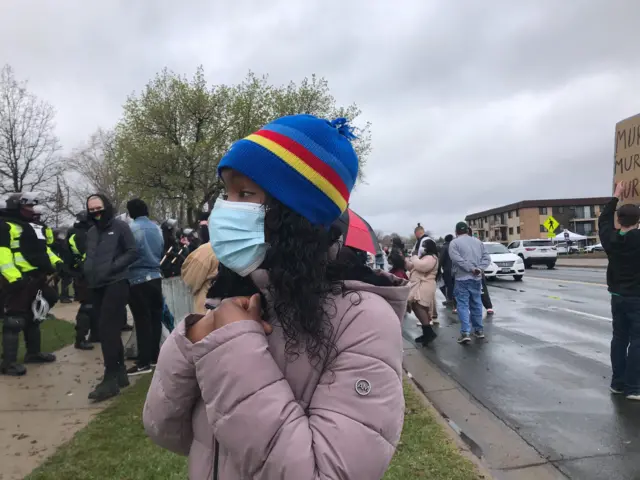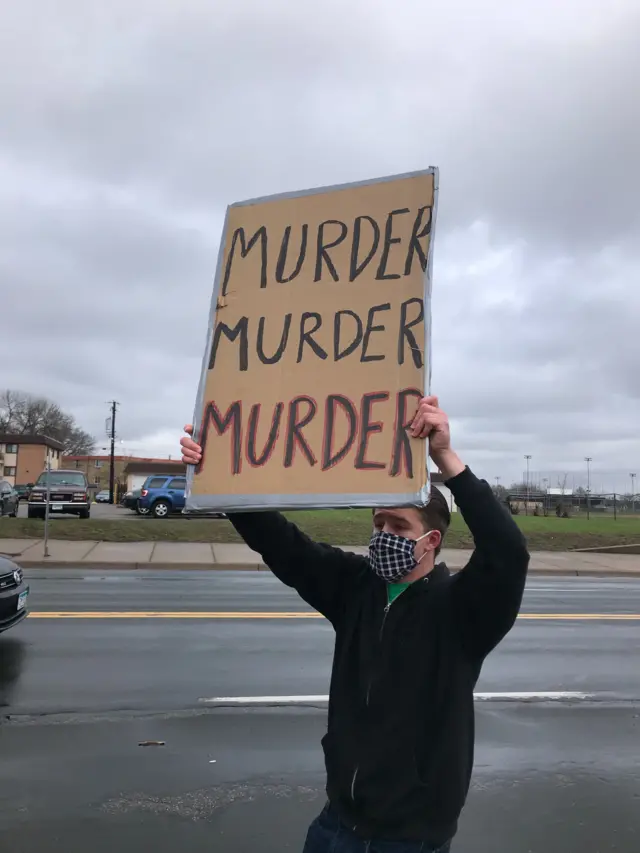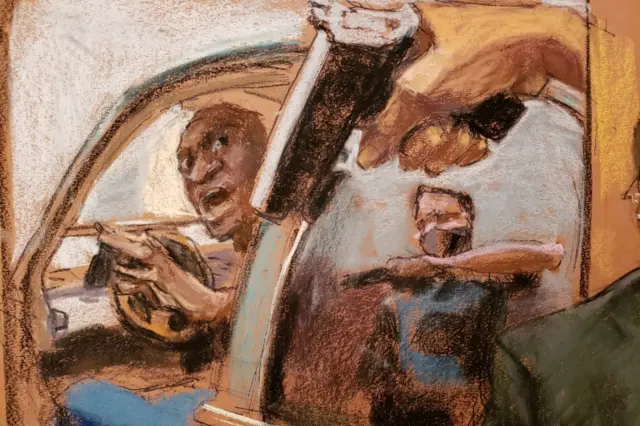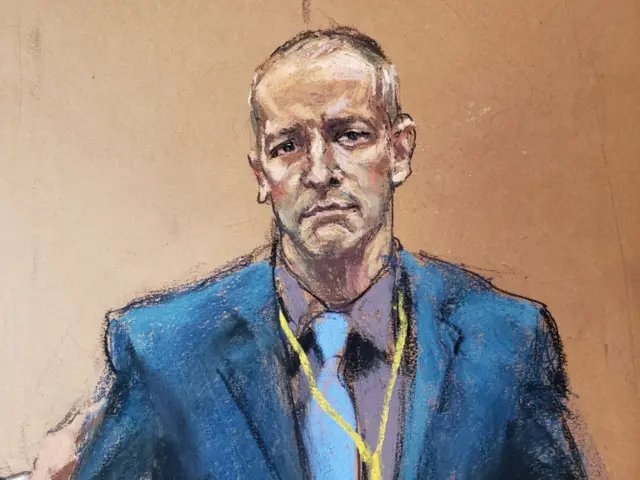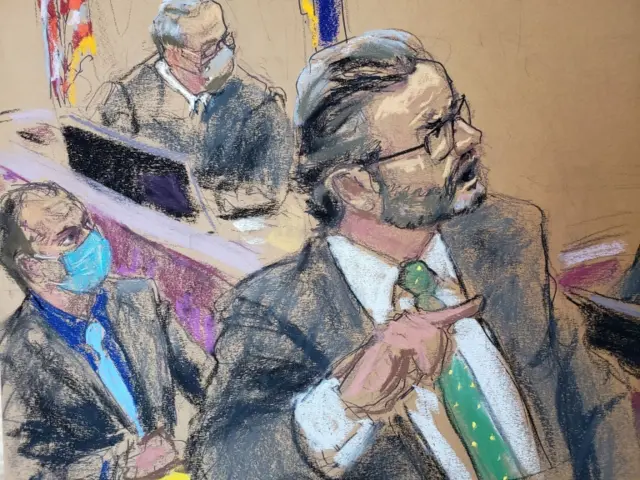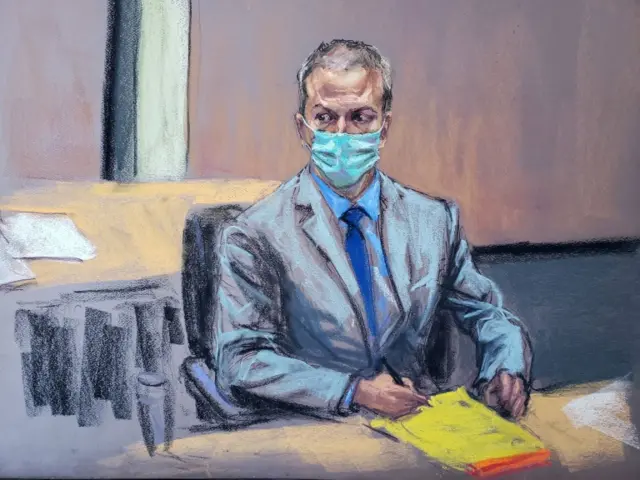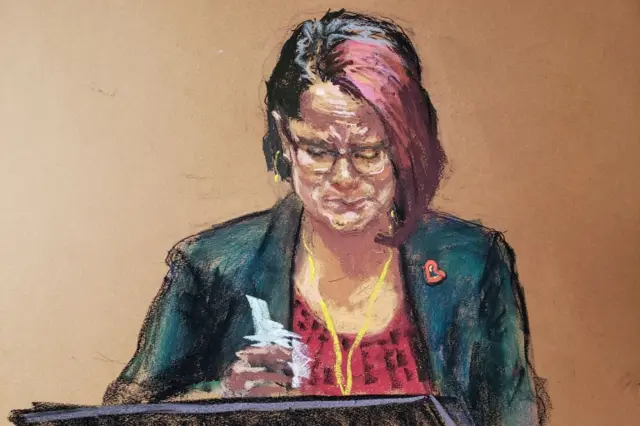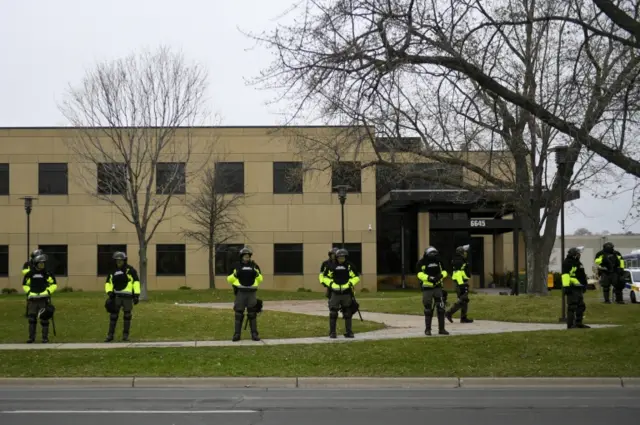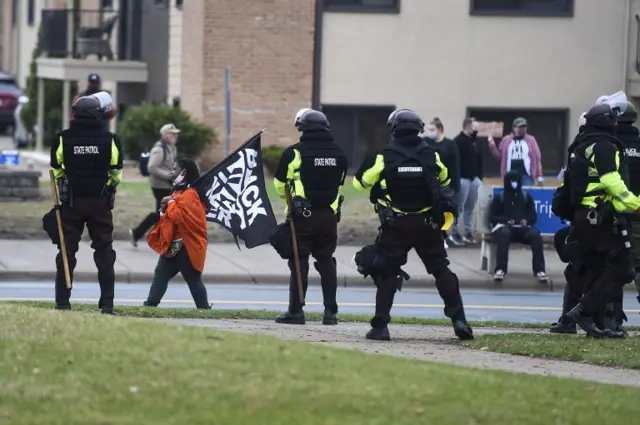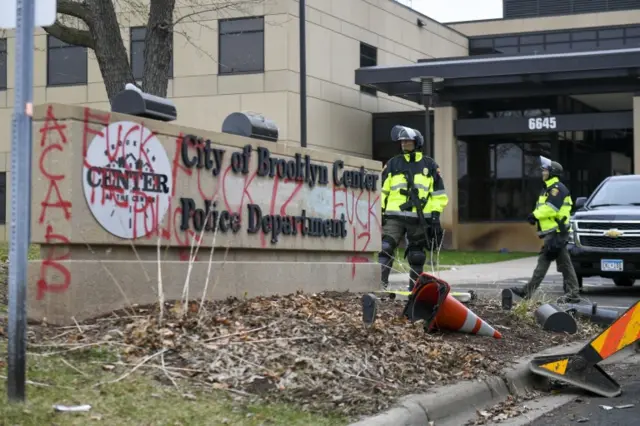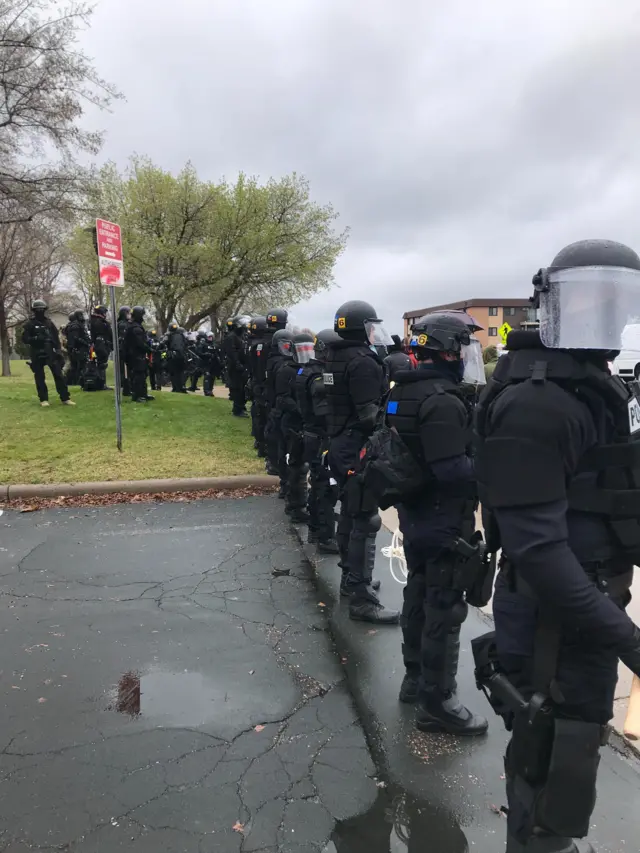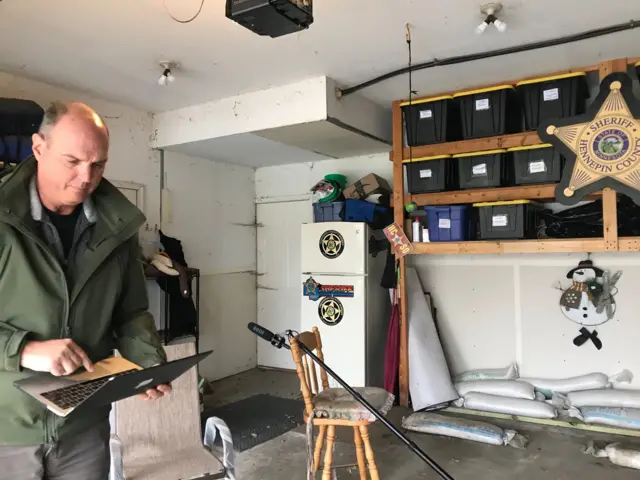What has Chauvin been charged with?published at 22:57 BST 12 April 2021
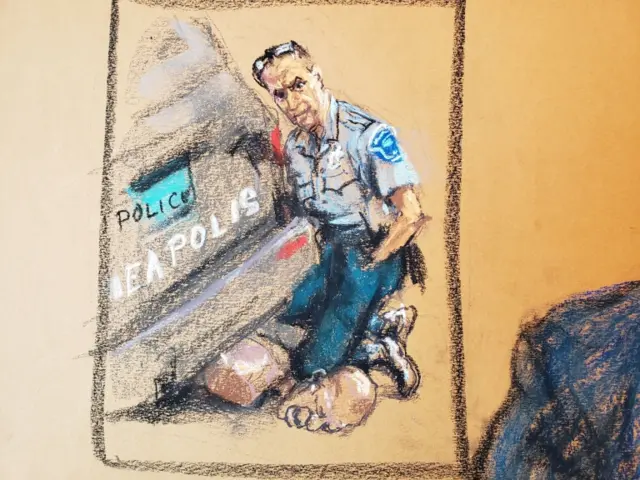 Image source, Reuters
Image source, ReutersProsecutors say Chauvin had his knee of Floyd's neck for more than nine minutes
Chauvin has been charged with second-degree unintentional murder, third-degree murder and second-degree manslaughter.
1) Second-degree murder
This is the most serious charge. It will require prosecutors to prove that Chauvin was assaulting Floyd when he caused his death. Chauvin could face up to 40 years in jail if convicted on this count.
2) Third-degree murder
To convict on this charge, the jury must be convinced that Chauvin showed a reckless disregard for human life. The charge carries a maximum sentence of 25 years.
3) Second-degree manslaughter
For the final charge, prosecutors will try to demonstrate that Chauvin took an “unreasonable risk” when he restrained Floyd, putting him at risk of death or serious harm.
With the manslaughter charge, prosecutors do not need prove Chauvin actually caused Floyd’s death. Someone found guilty of this charge may be sentenced to up to 10 years in jail.

